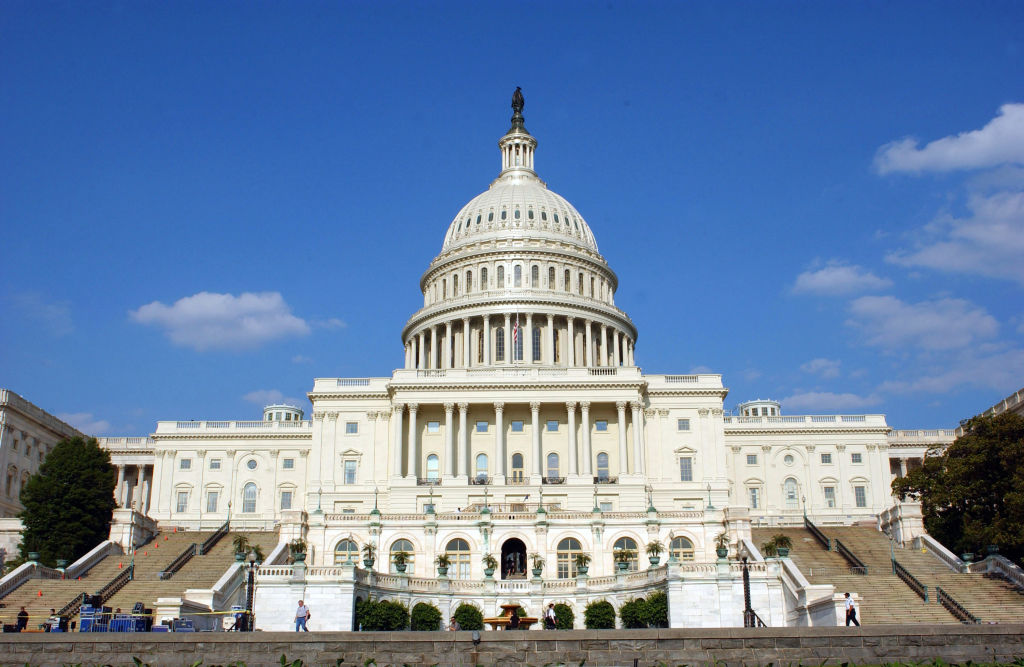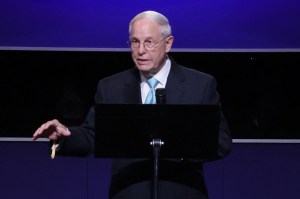Liberalism is dying, and the American right is ascendant. That’s the lesson of the last six or eight years of national politics. Barack Obama should have been the beginning of a generational renewal for the Democratic Party. Instead the Democrats have been prisoners of their past. They looked backward in 2016 and nominated Hillary Clinton. After she failed, they reached even further back to nominate Joe Biden, a man born during the Franklin D. Roosevelt administration.
Biden is not simply old; he’s nostalgia personified. He’s a throwback to a time when Democrats were less radical, when the party of FDR and JFK, and even of Bill Clinton, could lay claim to being an everyman’s party. The Democrats of the twenty-first century are a party almost exclusively for the educated, urban and secular. They have little to offer voters outside of the cities that are already their strongholds. They know they can’t win nationwide, so they run as if they were still the party of the New Deal, not new genders.
The Republicans have stratospheric expectations for this November, but in fact they have been on an upswing for nearly a decade. They nominated a difficult candidate in 2016 and still took the White House. They defied the annihilation conventional wisdom predicted in 2020, after four years of Trump controversies and months of pandemic and lockdown misery. For all that Trump’s critics blame him for the GOP’s losses in 2018 and 2020, he remade the party into a force capable of withstanding his own electoral drawbacks — and ready to retake power.
From the New Deal until the day before yesterday, liberalism was the all-but-official creed of America’s elite institutions: the Washington Post and network news, the Ivy League, the great philanthropic foundations, Wall Street and the leadership class of both political parties. Money could solve, or at least tackle, every problem; it was only a matter of spending enough, on welfare, on entitlements, on research, on charitable giving.
Institutional liberalism could be dull and bureaucratic, but it was wedded both to a bohemian liberal culture and a Middle American one. Each kind of cultural liberalism promised freedom and adventure, either for those who wanted to experiment with sex, drugs and rock’n’roll, or for those who took pride in the idea that American patriotism meant the love of liberty and the pursuit of opportunity.
The Democrats abandoned liberalism before Republicans did. They ceased to think of America as a nation dedicated to an always-advancing Jeffersonian ideal of personal freedom (however mythical that ideal might have been); instead they came to think of America’s story as a story of oppressions overthrown by successive revolutions. Thomas Jefferson, the founder of the Democratic Party — and long celebrated by Democrats as the true spiritual founder of America — was someone to be ashamed of, not to celebrate.
Educated, urban, secular America is in fact proudly post-American. And when young Democrats are confronted with the fact that their ideology cannot win widely enough to hold onto power in the Senate or to cobble together reliable majorities in the Electoral College, they respond by saying that America’s constitutional order itself is racist and fundamentally unfair. Young Democrats want a new country with a new Constitution.
What’s left of the old country would rather take its chances with the GOP, even if that means Donald Trump — perhaps especially if that means Donald Trump. The Republicans still speak the language of opportunity, which appeals to a great many voters who might once have been Democrats, including a growing number of Hispanics. The GOP still espouses the more popular and self-confident elements of liberalism. At the same time, it welcomes voters who are thoroughly disenchanted with liberalism as well: those who have returned to religion, often of a very traditional kind; those who disdain liberal institutionalism because they identify it with a thoroughly corrupt elitism; and those who reject the universalist implications (and aspirations) of liberal theories and ideals. Free trade, open borders and the “liberal international order” can no longer count on support among Republicans.
As elite liberals repudiate America’s past, liberal institutions lose their broad base of support. And as institutional liberalism decays, liberal intellectuals become all the more histrionic in their hype about “fascism” and threats to “our democracy.” They increasingly view a third or more of the American public as “deplorables.” Naturally enough, the voters they deplore then come to take an even dimmer view of the institutions that liberals control. The panicky way Democrats respond to Republicans makes the GOP grow stronger, and the stronger the GOP grows, the more shrill the Democratic response becomes.
Yet Republicans have a problem too. As the institutional order of twentieth-century liberalism rots, the GOP reaps the rewards but also winds up with more responsibility than it can handle. The American right can win amid the collapse, but it faces a harder task in building something new — an institutional establishment that suits a country very different from the one that elected Dwight Eisenhower, Richard Nixon and Ronald Reagan in landslides. Republicans can win power, but can they govern a country that is more secular and urban than the GOP’s own heartlands? If they can’t learn to do so, the United States may not be headed toward “national divorce,” but it will be directionless and shambling in a century when stability and cohesion are the world’s most precious commodities.
This article was originally published in The Spectator’s August 2022 World edition.


















